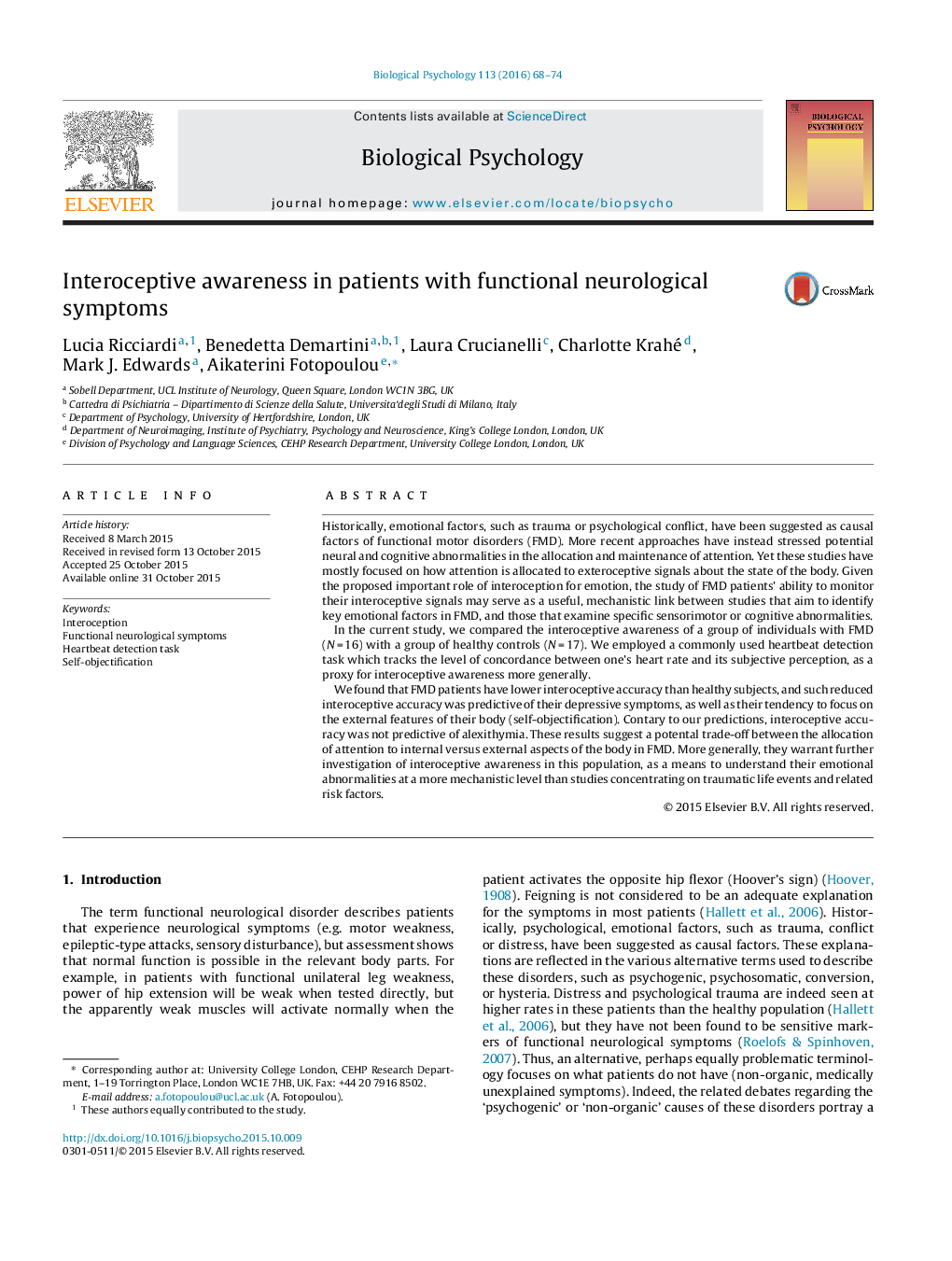| کد مقاله | کد نشریه | سال انتشار | مقاله انگلیسی | نسخه تمام متن |
|---|---|---|---|---|
| 920764 | 1473860 | 2016 | 7 صفحه PDF | دانلود رایگان |
• We compared interoceptive awareness in a group of individuals with functional motor disorders versus healthy controls.
• We employed a commonly used heartbeat detection task.
• We found that people with functional motor disorders have lower interoceptive accuracy than controls.
• The reduced interoceptive accuracy was predictive of their depressive symptoms and self-objectification.
Historically, emotional factors, such as trauma or psychological conflict, have been suggested as causal factors of functional motor disorders (FMD). More recent approaches have instead stressed potential neural and cognitive abnormalities in the allocation and maintenance of attention. Yet these studies have mostly focused on how attention is allocated to exteroceptive signals about the state of the body. Given the proposed important role of interoception for emotion, the study of FMD patients’ ability to monitor their interoceptive signals may serve as a useful, mechanistic link between studies that aim to identify key emotional factors in FMD, and those that examine specific sensorimotor or cognitive abnormalities.In the current study, we compared the interoceptive awareness of a group of individuals with FMD (N = 16) with a group of healthy controls (N = 17). We employed a commonly used heartbeat detection task which tracks the level of concordance between one’s heart rate and its subjective perception, as a proxy for interoceptive awareness more generally.We found that FMD patients have lower interoceptive accuracy than healthy subjects, and such reduced interoceptive accuracy was predictive of their depressive symptoms, as well as their tendency to focus on the external features of their body (self-objectification). Contary to our predictions, interoceptive accuracy was not predictive of alexithymia. These results suggest a potental trade-off between the allocation of attention to internal versus external aspects of the body in FMD. More generally, they warrant further investigation of interoceptive awareness in this population, as a means to understand their emotional abnormalities at a more mechanistic level than studies concentrating on traumatic life events and related risk factors.
Journal: Biological Psychology - Volume 113, January 2016, Pages 68–74
